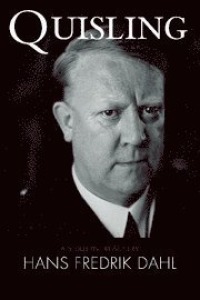
Liknande böcker
Justice in a Time of War : The True Story Behind the International Criminal Tribunal for the Former Yugoslavia
Justice face à la guerre
Bok av Pierre. Hazan
Can we achieve justice during war? Should law substitute for realpolitik? Can an international court act against the global community that created it? Justice in a Time of War is a translation from the French of the first complete, behind-the-scenes story of the International Criminal Tribunal for the Former Yugoslavia, from its proposal by Balkan journalist Mirko Klarin through recent developments in the trial of Slobodan Milosevic. It is also a meditation on the conflicting intersection of law and politics in achieving justice and peace. Le Monde's review (November 3, 2000) of the original edition recommended Hazan's book as a nuanced account of the Tribunal that should be a must-read for the new leaders of Yugoslavia. "" The story Pierre Hazan tells is that of an institution which, over the course of the years, has managed to escape in large measure from the initial hidden motives and manipulations of those who created it (and not only the Americans)."" With insider interviews filling out every scene, Hazan tells a chaotic story of war that raged while the Western powers cobbled together a tribunal in order to avoid actual intervention. The international lawyers and judges for this rump world court started with nothing - but they ultimately established the tribunal as an unavoidable actor in the Balkans. The West had created the Tribunal in 1993, hoping to threaten international criminals with indictment and thereby force an untenable peace. In 1999, the Tribunal suddenly became useful to NATO countries as a means by which to criminalize Milosevic's regime and to justify military intervention in Kosovo and in Serbia. Ultimately, this hastened the end of Milosevic's rule and led the way to history's first war crimes trial of a former president by an international tribunal. Hazan's account of the Tribunal's formation and evolution questions the contradictory policies of the Western powers and illuminates a cautionary tale for the reader: realizing ideals in a world enamored of realpolitik is a difficult and often haphazard activity.







